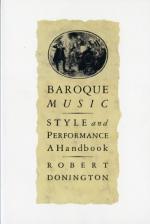|
This section contains 3,676 words (approx. 13 pages at 300 words per page) |

|
Popular Magic.
In early-modern Europe state churches identified enemies among the missionaries of rival Christian churches, even as they also singled out promoters and participants of popular magic as targets. Early-modern Europeans, like their medieval ancestors, retained a strong belief in supernatural planes of existence that bounded the natural and visible world. Popular magic focused on the spirits who were believed to exist in these supernatural planes, and on how these spirits could be manipulated to serve the needs of humans. Knowing the denizens of the supernatural as well as how to invoke them and what they could do for you was the stated expertise of "wise men" and "cunning women." These were just two names for what anthropologists today call shamans, that is, diviners and healers who provided their clients with help and healing based upon the claim to expertise in accessing the...
|
This section contains 3,676 words (approx. 13 pages at 300 words per page) |

|




